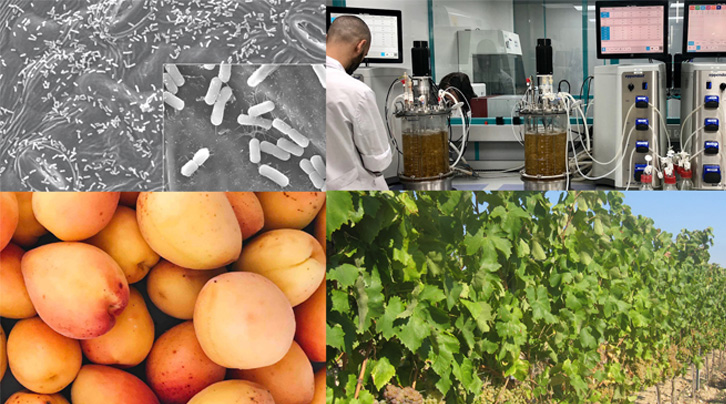Joining efforts to advance in sustainable agriculture

UAB Plant Biology researchers participate in the PALVIP project (Alternative Protection of Interregional Plant Productions of the Pyrenees), to develop biocontrol products adapted to Mediterranean crops and promote sustainable agriculture in Catalonia and Roussillon. The project involves the creation of a cross-border research network to meet the challenges of the agricultural production and biocontrol products in the territory.
PALVIP is the acronym for Alternative Protection of Interregional Plant Productions of the Pyrenees. It is a cross-border project Catalonia - Roussillon, to develop biocontrol products adapted to Mediterranean crops. The project, framed within the Intereg POCTEFA program (2014-2020), with an estimated total cost of € 1,342,841, is 65% co-financed by the European Regional Development Fund (FEDER).
Universitat Autònoma de Barcelona (UAB) participates in the project together with the University of Perpinyà Via Domitia (UPVD) and the University of Girona (UdG), the Chambre d’Agriculture des Pyrénés Orientales (CA66), l’Institut Català de la Vinya i el Vi (INCAVI) and the comapny Futureco Bioscience S.A.
Thanks to the complementarity of competences between partners and the creation of cross-border research and experimentation networks, the aim is to develop a comprehensive approach that goes beyond the classical evaluation of the field efficiency of biocontrol products.
The main objectives are:
- Create an innovative cross-border research and experimentation network capable of tackling the problems that currently arise in crop production.
- Allow the release of biocontrol products (biopesticides) adapted to Mediterranean crops, which are efficient and economically acceptable by users, to promote the development of sustainable agriculture.
- Encourage, in Catalonia and Roussillon, the economic development of companies producing biopesticides and the development of local industries around the production of these alternative products.
To achieve these objectives, biopesticides selected according to their efficacy are studied through field trials.
The tasks of the Participating Partners are: to carry out field studies (CA66 and INCAVI), evaluation of the effect on plants (UAB and UdG) andevaluation of the environmental impact (UPVD, UdG, and Futureco Bioscience).
The diseases and pests on which field trials will be carried out are Downy mildew, powdery mildew, and Botrytis on vine; Monilia in peach and apricot tree; Fly on cherry and Weeds in field horticulture.
These tests include commercial references of pesticides and biopesticides based on selected microorganisms and botanical extracts. The impact of the use of biocontrol products on the quality of wine and the environment is also evaluated by means of transcriptomics, metabolomics, and environmental metabolic footprint techniques. These techniques analyze molecular interactions between the components of complex mixtures of soils, leaves and fruits, determining gene expression, protein synthesis and hormones of metabolism or the response to stress of plants.
On the other hand, the project will collect information on the residues of the products, the formation of by-products and the effect on biodiversity, to determine their ecological safety and ensure that they are not ecotoxic products.
Plant Biology Unit (BABVE)
Faculty of Biosciences
Universitat Autònoma de Barcelona

